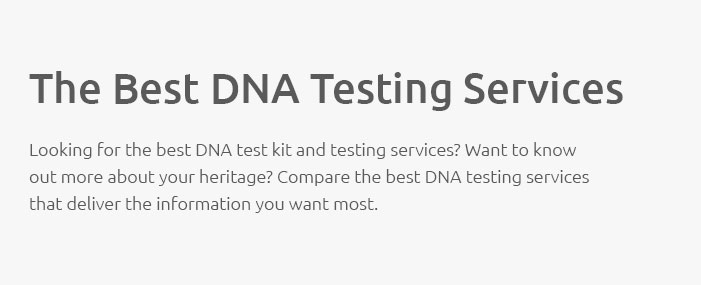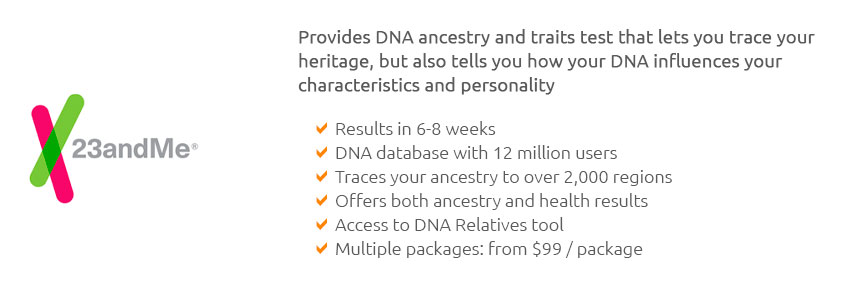 |
 |
 |
|---|
 |
 |
|---|
 |
|
|---|---|
 |
 |
 |
 |
 |
 |
 |
 |
 |
 |
 |
 |
 |
 |
 |
 |
|---|
The Best DNA Test for Health Issues: Important ConsiderationsIn an age where personal health and well-being are paramount, many individuals are turning to DNA testing as a method of uncovering potential health issues before they manifest into more serious conditions. This burgeoning interest in genetic testing for health purposes has given rise to a plethora of options in the market, each promising insights into one's genetic predispositions. However, selecting the best DNA test for health issues can be a daunting task, given the myriad of factors to consider. Understanding your needs is the first step in this journey. Are you primarily concerned with identifying genetic markers for chronic diseases, or are you more interested in discovering hereditary traits and conditions that might affect your family? Different tests cater to different needs, so it is crucial to have clarity on your personal health goals before diving into the world of genetic testing. Accuracy and comprehensiveness are key aspects to scrutinize when evaluating DNA tests. Not all tests are created equal; some are more comprehensive, analyzing a wider range of genetic markers than others. It's important to choose a test that is not only accurate but also thorough in its analysis, offering a deep dive into your genetic makeup. Companies like 23andMe and AncestryDNA have become household names, but new players in the field, such as Invitae and MyHeritage, are also making significant strides in offering detailed health reports. Another vital consideration is privacy and data security. With personal genetic information at stake, ensuring that the company you choose has robust data protection policies is crucial. Look for companies that provide clear, transparent information on how your data will be used, and whether it will be shared with third parties. Many reputable firms offer assurances that your genetic data will remain confidential, but it never hurts to read the fine print. Cost is inevitably a factor that cannot be overlooked. While some tests are relatively affordable, others can be quite expensive, especially those that offer more detailed health insights. It's essential to weigh the cost against the potential benefits, and consider whether the investment is worthwhile for your particular circumstances. Some health insurance plans may cover genetic testing, so it's worth checking with your provider to see if this is an option. Lastly, consider the support and resources offered by the testing company. A good DNA test should provide more than just raw data; it should offer comprehensive reports and, ideally, access to genetic counselors or other healthcare professionals who can help you interpret the results and decide on any necessary follow-up actions. In this regard, companies that offer ongoing support and resources tend to stand out.
In conclusion, while choosing the best DNA test for health issues might seem overwhelming, taking the time to research and understand your options can lead to valuable insights into your genetic health. By considering factors such as personal health goals, test accuracy, privacy, cost, and available support, you can make an informed decision that aligns with your needs and contributes to your overall well-being. Ultimately, the best DNA test for you is one that provides reliable, actionable insights while safeguarding your personal genetic information. https://www.23andme.com/?srsltid=AfmBOopsdQwnicUZgiiqlXUyAIhILAa1nbappAtiirvetxKHQLnQc2bi
23andMe offers DNA testing with the most comprehensive ancestry breakdown, personalized health insights and more. https://doh.wa.gov/you-and-your-family/infants-children-and-teens-links-and-services/childrens-health-and-safety/genetic-services/purchasing-genetic-testing-buyers-beware
... genetic tests for health concerns, ancestry, or even relationship compatibility. How is DTC genetic testing done? When you order a DTC genetic test, the ... https://sequencing.com/education-center/genetic-testing-for-diseases/how-choose-dna-test-diseases?srsltid=AfmBOoqepvsQpCezzo_GQQTVuUoAJvnWZ5zhTqFY0BDVU3egWXJmMreG
For the best DNA test for diseases, clinical-grade whole-genome sequencing is available. This DNA test looks at 100% of the human genome and provides test ...
|
|---|